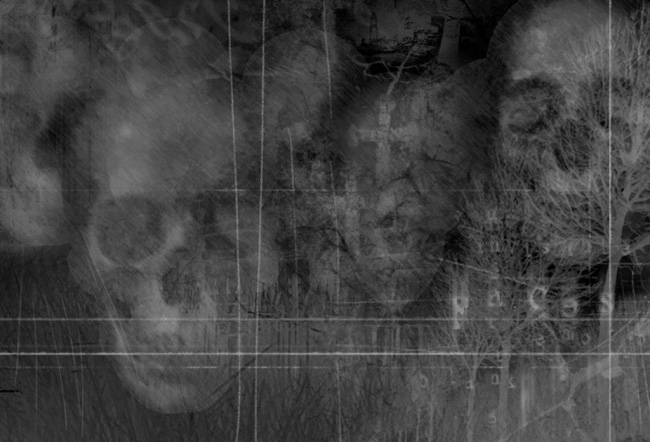Ühel päeval kuulsin oma küllaltki kôrges vanuses isa valjuhäälset telefonikônet tema eakaaslasest lähedase sôbraga. Valdavalt oli juttu loomulikult tervisest ning ühel hetkel küsis minu isa sôbralt, kuhu me tema arvates pärast surma läheme. “Ah, et ussidele ja taevasse? Aga kas sa ei arva, et taevas on jube igav – seal allpool oleks ju palju lôbusam – kôik tuttavad on juba ees!” Igaks juhuks märgin, et kumbagi neist ei seo Eesti ja tänase vaba maailma seadusruumi môistes kriminaalne elu.
Juhuslikult lugesin (kuulasin tänu audible.com suurele audioraamatu-valikule) umbes samal ajal Dante Alighieri kuulsat teost “Divine Comedy” (“Jumalik komöödia”) “elust pärast elu”, nagu ta ise seda iseloomustab, kus oma eluteel suuna kaotanud ja enesetapu äärele jôudnud noor luuletaja suundub mentor Virgili juhtimisel ôpetlikule teekonnale läbi pôrgu, puhastusmäe ja jumaliku paradiisi kõigi tasemete, leidmaks suund ja môte oma edasisele elule.
Kohe pôrguväravate juures kohtub ta suure hulga kaeblevate hingedega, keda Virgil nimetab terminiga “the nothing-people” (“olematud inimesed”) – need hinged olid inimesed, kes elu ajal ei teinud mitte midagi ja lahkusid elavate seast endast mingit märki maha jätmata, oma elu lihtsalt ära raisates. Sel pôhjusel ei taha neid taevas, ja ka pôrgu mitte ehk neile hingedele jääb üle kannatada igavik selles hallis kaeblevas seltskonnas pôrgu väravate kôrval. Kuigi põrgu-paradiis kontseptsioon ja kõik Acheroni tumedast pôrgujôest alanud pôrgutasemete ôudused-kannatused on üsna levinud teadmine, rabas see olematute inimeste olemasolu ja suur hulk mind tôesti sügavalt.
Kuigi kindlasti ei kutsu ma mainitud seltskonnast pääsemise nimel siinkohal üles kurja tegema, ärge laske oma elu lihtsalt mööda libiseda – tehke midaGIGI(eelistatavalt head, môistagi).
Huvitaval kombel on Dante teose kolmanda osa, “Paradiso/Heaven” (“Paradiis”) järgi mitu astet ka paradiisil ja olenevalt heategude ja Jumalale pühendumise astmest määratakse ka hinged paradiisi eri tasanditele.
Seega tehke oma eludes midagi, soovitavalt heapoolset, aga ärge jätke tegemata. Selle eest saab Dante hinnangul karistada.
****************************************************************************
Recently I heard my father of quite a high age speaking on the phone (loudly) to a close friend of his of the same age. As much as I heard they were mainly discussing health issues. At one point my father asked where does his friend think we’ll go after death. “Oh, to the worms and heaven? But don’t you think it would be awfully boring up there – it would be lot more fun on the lower floor – all the friends waiting over there!” Just in case of a confusion I assure you that neither of them have troubles with the law of the free world and Estonia.
I happened to read (listen, thanks to audio books from audible.com) Dante Alighieri’s famous “Divine Comedy” around the same time, about “life beyond life” as he himself states there. It’s a book of a young poet who’s lost the direction of his life and is in the verge of a suicide therefore. He follows his mentor Virgil on a long journey through Hell, the mountain of Purgatory and the Paradise to find a meaning and direction to his remaining life.
Right at the gates of Hell he meets a huge crowd of moaning souls who Virgil claims to be “the nothing-people – these souls used to be people who didn’t do anything during their lifetime, leaving no mark behind, they just wasted their lives. That is why the Paradise doesn’t want them and the same applies to the Hell. These souls have to spend the eternity suffering in this moaning crowd.
While the concept of Hell-Paradise and all the sufferings that begin over the dark Acheron river of Hell is widely known, the existence and the vast amount of the nothing-people really shattered me hard.
Although I certainly don’t evoke you to do evil in order to be kept from this crowd, don’t just let your lives slide by and do something(preferably good, of course).
There are also different levels of the Paradise interestringly, according to the third part, “Paradiso/Heaven” depending on the good deeds and the devotion to God.
Therefore, please do something with your lives – hopefully with a touch of goodness, do not leave things undone. This is punishable, according to Dante.

